- Home
- Roger Taylor
Arash-Felloren
Arash-Felloren Read online
Arash-Felloren
Roger Taylor
Roger Taylor
Arash-Felloren
Chapter 1
The Wyndering
The door opened, creaking noisily. As the sound faded into the miasma of stale ale that pervaded the gloomy interior of the inn, it was followed by that of a glass being knocked over and hastily retrieved. The innkeeper had started violently out of his drowsing vigil at the crude wooden counter. He swore, a little too loudly, and gazed around angrily to indicate to such as might be watching that he had not been asleep but vigorously alert.
His charade evoked no response from the six customers in the drinking room. Two of them were slumped inelegantly across their tables, having succumbed either to the poor ale that was the inn’s speciality, or to the heat that had been oppressing the region for the past weeks. The other four, with varying degrees of suspicion and concern, were doing what the innkeeper was now doing – staring at the figure of a man silhouetted in the doorway, stark and still against the red sky.
For a moment, the figure seemed to the innkeeper to be emerging from a glowing fire; despite the heat in the room, he shivered. A quick and unnecessary rearrangement of several glasses and bottles disguised the reaction.
When he looked up again, the man had not moved though there was an inclination of his head which indicated that he was perhaps examining the interior of the inn before deciding to enter.
The action reassured the innkeeper. Not normally given to thinking about anything other than his own immediate needs, the sudden intrusion of his imagination into his thoughts had unsettled him far more than he would have admitted – not least to himself. Now, however, the surly normality of his life was reasserting itself. The new arrival was exhibiting one of the signs which were typical of a traveller in this area: caution.
Mercenary? the innkeeper thought. Trader? Labourer? Artisan? Miner? It was a game he played whenever a stranger arrived and he flattered himself that he could identify the calling of any newcomer at the merest glance, though he usually announced his success at this retrospectively with a knowing nod to his cronies and, ‘Saw it, as soon as he came in,’ or something similar.
Studiously turning his attention away from the door, he returned to his normal position, leaning heavily forward on the counter as though keeping his clientele under revue. It was an unremarkable posture and only his regular customers knew that his brawny arms were so arranged that his right hand would be hanging near a weighted cudgel strategically placed on two makeshift brackets behind the counter; a cudgel that he could wield with a speed and accuracy quite at odds with the lumbering pace that his overweight frame imposed on most of his actions. They knew too, that his small, peevish eyes were not in fact watching them, but maintaining a close, sidelong observation of the newcomer.
The figure stepped forward. The red evening sky behind him appeared to flare, as if suddenly released. He had scarcely taken one step when the innkeeper’s eyes came sharply forward like those of a dog avoiding the gaze of its pack leader. The hand near the cudgel softly curled and eased away from it, as if even its hidden proximity to the weapon might antagonize. The actions were instinctive and he could not have accounted for them even if he had realized what he was doing. Habit, however, overrode this response and straightened him up to receive his new customer.
Whatever ominous presence the newcomer had seemed to exude on his first appearance vanished as the door closed, and the dim light of the inn dressed him in a long, travel-stained coat and a wide-brimmed and equally stained hat. His right hand was wound around the strap of a pack hanging from his shoulder. He looked about him as he walked through the silence, then he reached up and removed his hat to reveal a lean weather-beaten face.
The innkeeper found himself looking into deep-set eyes. They were heavily shaded in the poor light and he could thus read nothing in them, though a fleeting glint from the depths unnerved him momentarily. Uncertain of his voice, he raised his eyebrows in insolent inquiry.
‘Do you have a room where I can stay?’
The ordinariness of the question aided the innkeeper’s recovery. He frowned, though it was not at the request, but at the man’s accent, which he could not place immediately. Still, that would have to wait. First things first.
‘Got any money?’ he demanded.
The man nodded slightly. ‘How much is the room?’
The innkeeper told him, increasing the normal price by a half and adding, ‘In advance.’
Unexpectedly, the man did not quibble and his left hand dropped two coins on the counter. ‘Three nights,’ he said quietly.
The innkeeper swept them up a little too eagerly, then, remembering himself, examined them carefully. They were local and they were good. ‘Three nights,’ he confirmed, stoically keeping a gleam from his eyes.
‘I’ll put my horse in the stable,’ the man said, turning away.
Fully himself again now, the innkeeper jingled the two coins significantly. The man paused, then placed a smaller coin on the counter. ‘This will feed us both.’
The innkeeper opened his mouth to remonstrate, but though the voice had been soft and unprovocative, the statement was categorical and he found himself disinclined to barter. The coins in his bulbous fist weighed heavily and he nodded in agreement. The man turned and left. As the door opened and closed, the red light washed briefly into the inn again.
‘Gave me a start when he came in, that one, Ghreel. Thought he was one of Barran’s men.’
The speaker was a rat-faced individual. He scraped his chair back and sidled up to the counter. Ghreel jingled the coins again, then grunted. He was speculating urgently about who the newcomer might be but he had no intention of exposing his confusion to the likes of ale-swilling flotsam such as Riever here.
Nevertheless, his position as supreme authority in such matters had to be maintained. He pursed his lips knowingly and tossed the coins casually into his apron pocket. ‘Not one of Barran’s,’ he said decisively. Little risk in that. Barran’s men didn’t wander about alone out here, didn’t pay for anything if they could afford it, and had no need for rooms at an inn. Further, though his entrance had been oddly disconcerting, he did not have the presence of a fighter of any kind, least of all one of Barran’s. From the hang of his coat he wore a sword, but that signified nothing.
Curiosity suddenly got the better of him – and greed. The man hadn’t haggled, so obviously he wasn’t short of money. Either that or he was simple.
‘Better see what he’s up to,’ he said, propelling himself away from the counter. The room shook under the impact of his heavy footfalls as he rolled across to the door. Riever took half a step after him, then changed his mind and returned to his table.
Outside, the setting sun, made almost blood-red by the day’s dust banging in the air, flooded the landscape and turned the inn’s untidy yard into a patchwork of unfamiliar shadows. Ghreel screwed up his eyes then grimaced as a warm and dank breeze wound itself about him like a clinging blanket. He unearthed a soiled kerchief from a deep pocket and ran it over his face as he made an undulating progress toward the open stable door.
As the various parts of Ghreel came to an unsteady standstill in the doorway, the stranger was rubbing water over the muzzle of his horse. He turned to face the panting innkeeper. Despite the heat, he had replaced his hat and Ghreel felt himself the object of an intense scrutiny even though he could not see the man’s eyes.
‘Got everything you need?’ The words blustered out of him.
The man led his horse to a stall and whispered to it before turning back to Ghreel.
‘Yes, thank you,’ he said, hitching his pack on to his shoulder and picking up two saddlebags. ‘Could you show me my room?’
Once again, the soft voice and quiet manner left Ghreel at a loss, throwing him, untypically, into politeness. ‘Are you travelling on, or looking for work hereabouts?’ he asked as he motioned the man back to the inn.
‘Both,’ came the reply. ‘I’ll need to work for a little while until I’ve enough money to move on.’
It gave Ghreel the opportunity he had been waiting for. ‘What’s your trade?’ he asked.
‘I’m a teacher.’
‘Teacher!’ Ghreel exclaimed. He wobbled to a halt and looked at his companion with a combination of disbelief and distaste. ‘Teacher!’ He was in his element now – he hated ‘clever’ people. His inadvertent politeness vanished. ‘What do you think you’re going to teach around here?’ He waved a dismissive hand and set off again.
‘Whatever people want to learn.’ The answer showed no sign of irritation at the innkeeper’s attitude, which soured further as a consequence.
‘That’s precisely nothing,’ Ghreel retorted, with a sneer. ‘Or at least nothing that comes out of a book. All anyone wants to know here is what they can use – who’s got money they can steal, where they can get a woman, and who’s got the cheapest ale.’ He patted himself on the chest.
He expected some argument, especially from a know-it-all like this one. The man obviously had no idea what the real world was like. He’d be lucky if he didn’t end up in a ditch with his head stoved in. Even experienced travellers went on their ways wiser after passing through here. Wiser – and poorer.
‘Perhaps I should just move on, then.’
The reply brought Ghreel to another halt. In his enthusiasm to persecute this newcomer he had nearly stepped over the mark. His hands involuntarily closed around the coins in his apron pocket and he gave the man a quick, narrow-eyed glance. The hat and the low sun combined to prevent him from reading anything in the shadowed face, but with an effort he forced himself to look concerned. ‘Your horse looks as if it could do with a rest,’ he said. ‘As do you.’ He tried to make his expression fatherly, but it became a yellow-toothed leer. ‘There’ll probably be something for you.’ A fat thumb flicked towards the setting sun. ‘There’s the city. And the Lowe Towns. Not to mention more than a few farms.’ The leer nodded to the east. ‘Then there’s the mines in the Thlosgaral and the Wilde Ports on the other side.’ He was unable to resist a final jibe. ‘Providing you don’t mind doing real work, of course.’
Once again, to Ghreel’s annoyance, the man did not respond, and they entered the inn in silence.
‘What is the city?’ the man asked as the stagnant dimness of the drinking room embraced them. He took off his hat. Ghreel blinked to clear his vision, then looked at him with a mixture of disbelief and suspicion. There was no sign of mockery in the face however.
‘What do you mean, what’s the city?’
‘What’s it called?’
The innkeeper pondered the question, testing it carefully, still suspicious. ‘Arash-Felloren,’ he said eventually, speaking wanly, as if to a treacherous child. ‘You can’t not have heard about Arash-Felloren, surely?’
The man gave a self-deprecating shrug. ‘I live far away.’
Like a hunting animal returning to its lair, Ghreel scuttled back behind the counter, and into his natural condition. He addressed the room. ‘Hear that, lads? Man here’s a teacher.’ He lingered on the word. ‘But he’s never heard of Arash-Felloren. You must have come from a very long way away, that’s all I can say. And it must have been a quiet place.’ Unfriendly laughter greeted this but the man just turned and acknowledged it with a smile.
‘I have, and it was,’ he said. ‘But I’ll take your advice. I’ll stay a while. Perhaps try the city tomorrow.’ He met Ghreel’s taunting gaze squarely. ‘I’d like to rest now, if you don’t mind.’
Ghreel scowled. This man’s lack of response was increasingly irritating but it also gave him no excuse for picking a quarrel.
‘Never heard of Arash-Felloren,’ he growled, loath to let the topic pass. ‘Biggest city in the world, lad.’ He was about to indulge in a scornful tirade about the stranger’s chances of surviving there when the coins in his apron reminded him that they might have cousins nearby. He contented himself with a laboured shake of his head as he indicated a door at the far end of the room.
The wooden stairs creaked unhappily as Ghreel made his way up them. It was not until he had reached the top that the stranger followed him, apparently anxious not to be trapped in this timber-sided ravine with Ghreel’s mountainous bulk lurching above him. The stairway led directly on to a wide, unevenly boarded balcony lined with doors and shuttered windows. Ghreel kicked open the nearest door.
‘Here you are,’ he said brusquely. He was about to turn away when a spasm of proprietorial pride seized him and he followed the stranger into the room. ‘Shutters are a bit stiff,’ he said, giving them a powerful slap. ‘But you’ll not be wanting them open too long, what with the flies and dust and all.’ The tour moved to the bed. ‘Mattress was given a good beating only last week.’ And thence to a stone sink. The pride became incongruously visible. ‘And water.’ He pumped a handle energetically and, after some peevish coughing, a desultory trickle of water spluttered irritably into the sink. ‘Only inn round here with that,’ he announced. ‘You’ll be lucky with most of them if you’ve got a pump in the yard and a bucket that doesn’t leak.’
The stranger raised his eyebrows and nodded an acknowledgement to indicate his appreciation at finding this haven. ‘Only here,’ Ghreel repeated. ‘Only at The Wyndering. Anyone’ll tell you.’ Then he was gone, the floor shaking rhythmically to his departure.
The stranger put his saddlebags on the floor and laid his pack on the bed. He left the door open and, after a brief struggle, managed to open the various shutters – one on to the balcony and one overlooking the inn yard. The brilliant redness of the setting sun was fading to a dusty ruddiness, though there seemed to be no lessening of the day’s heat. He took off his hat and the long coat and laid them carefully on the room’s one chair. Then he unbuckled his belt and, carefully placing his sword by his side, lay down on the bed, his hands behind his head.
His eyes moved slowly and methodically about the room, noting the old workmanship and the scars of many years of usage. The room, like The Wyndering as a whole, had the air of a fine old gentleman fallen upon hard times but now revelling in it. His study was punctuated by occasional sounds from the yard and the drinking room below.
‘What’s it to be tomorrow?’ said his companion. ‘Arash-Felloren, or the Wilde Ports?’
Chapter 2
Gasping for breath, but made even more vigorous and fleet than usual by the angry cries following him, Pinnatte ran frantically along the crowded street.
He had made a mistake – a serious one – but it was not until after he had snatched the man’s purse that he realized he had been one of the Kyrosdyn. Worse, the wretch had been a full Brother too, perhaps even a Higher Brother, judging by the quality of the crystals marking out the emblem on his purse, and the size of the guard who appeared from nowhere at his master’s cry.
Pinnatte swung round a corner.
And that cry had been another thing – it was still ringing in his head – that peculiar blend of fury, disbelief and throat-wrenching petulance. It had confirmed the man as a Kyrosdyn even as Pinnatte was registering the emblem and its implications for his immediate future.
He cursed silently. Damn the man, wandering the streets looking just like any other person. How was an honest thief supposed to know? Why the devil hadn’t he been wearing his robes or at least carrying his staff? Pinnatte did not debate the questions, however. Instead he twitched his head as the memory returned of his victim’s guard looming ahead of him, massive hands outstretched, eyes full of malevolent focus. His head had twitched thus while his mouth had been gaping, his mind teetering on the edge of panic and, having saved him then, it seemed to be locked into him now, as if every time he did it, he might suddenly find himself fr
ee.
Passers-by moved hastily out of his way, some nervously, others angrily, swearing after him or aiming a blow. One or two, sensing reward, tried to grab hold of him, but he was moving too quickly and the one individual who did succeed found himself a victim of Pinnatte’s momentum, ending his attempted seizure by spinning round incongruously and tottering into the path of a passing carriage.
The resultant din brought vividly to Pinnatte the realization that his headlong flight was leaving a trail for his pursuers as clear as footprints in the snow. He must slow down! If he didn’t he could well set off the Cry, then, if he survived that, he’d find his fellow thieves after him as well.
But he was not fully in command of his legs. The Kyrosdyn were terrifying. Steal crystals from most people and you could certainly look for a more vigorous pursuit than if you had stolen coin or any other jewellery. But steal one from a Kyrosdyn and you could look to run as far as the Wilde Ports, then a long swim, if you hoped to escape. Kyrosdyn obsession with crystals was legendary. It was one of the great ‘Do Nots’ of the Guild of Thieves – ‘Stole a crystal from a Kyrosdyn,’ was the knowing way of saying, ‘He’s a dead man.’
That was why he had thrown the purse in the guard’s face almost immediately – as if the action would absolve him from all blame. But the Kyrosdyn were more than just obsessive about their crystals, they had a lust for them that was almost religious, and to touch them without respect, still less without permission, was to bring down that unreasoned and self-righteous wrath on the perpetrator’s head that only the religious can aspire to.
And strange things happened to those who were taken by the Kyrosdyn…
He must stop running! He must stop!
The urgency of this inner demand was beginning to outweigh the urgency of the need to flee. Amongst the many skills that Pinnatte’s years of thieving had given him was one which made him aware of the sound of the crowd even when he was not particularly listening to it. Sometimes it would tell him that he could almost stroll from pocket to pocket, shop to shop, and take whatever he wanted without creating even a stir. At others, seemingly no different, it said, ‘No. Walk away. Leave it. It’s too dangerous.’ Whenever he had chosen to ignore this soft voice, he had suffered for it. Now, he could sense his erratic progress rebounding through the bustling chaos of the streets and leaving a wake that was not dissipating, but gathering in force. If he didn’t stop soon, then the Cry would be called as sure as fate.

 The call of the sword tcoh-1
The call of the sword tcoh-1 Farnor
Farnor Into Narsindal
Into Narsindal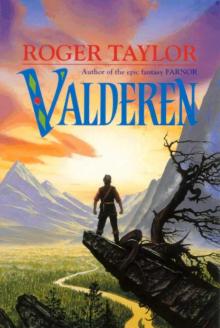 Valderen ft-2
Valderen ft-2 Arash-Felloren
Arash-Felloren The Return of the Sword tcoh-5
The Return of the Sword tcoh-5![Ibryen [A sequel to the Chronicles of Hawklan] Read online](http://i1.bookreadfree.com/i1/03/26/ibryen_a_sequel_to_the_chronicles_of_hawklan_preview.jpg) Ibryen [A sequel to the Chronicles of Hawklan]
Ibryen [A sequel to the Chronicles of Hawklan]![The Call of the Sword [Book One of The Chronicles of Hawklan] Read online](http://i1.bookreadfree.com/i/03/24/the_call_of_the_sword_book_one_of_the_chronicles_of_hawklan_preview.jpg) The Call of the Sword [Book One of The Chronicles of Hawklan]
The Call of the Sword [Book One of The Chronicles of Hawklan]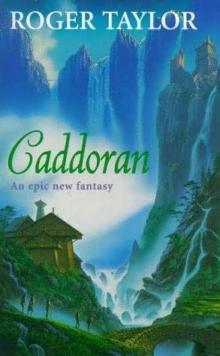 Caddoran
Caddoran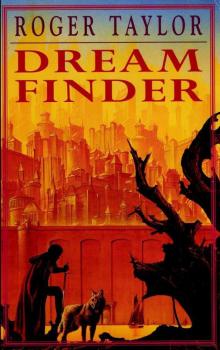 Dream Finder
Dream Finder The Waking of Orthlund
The Waking of Orthlund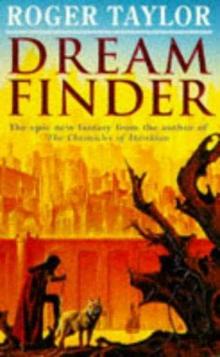 Dream Finder cohs-1
Dream Finder cohs-1 The waking of Orthlund tcoh-3
The waking of Orthlund tcoh-3 The Call of the Sword
The Call of the Sword The fall of Fyorlund tcoh-2
The fall of Fyorlund tcoh-2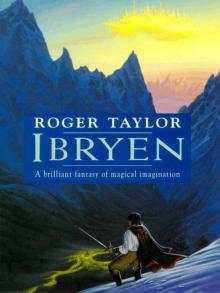 Ibryen
Ibryen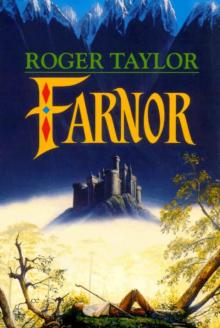 Farnor ft-1
Farnor ft-1 The Return of the Sword
The Return of the Sword![Into Narsindal [Book Four of The Chronicles of Hawklan] Read online](http://i1.bookreadfree.com/i2/04/06/into_narsindal_book_four_of_the_chronicles_of_hawklan_preview.jpg) Into Narsindal [Book Four of The Chronicles of Hawklan]
Into Narsindal [Book Four of The Chronicles of Hawklan]![Valderen [The Second Part of Farnor's Tale] Read online](http://i1.bookreadfree.com/i2/04/05/valderen_the_second_part_of_farnors_tale_preview.jpg) Valderen [The Second Part of Farnor's Tale]
Valderen [The Second Part of Farnor's Tale]![The Fall of Fyorlund [Book Two of The Chronicles of Hawklan] Read online](http://i1.bookreadfree.com/i2/04/08/the_fall_of_fyorlund_book_two_of_the_chronicles_of_hawklan_preview.jpg) The Fall of Fyorlund [Book Two of The Chronicles of Hawklan]
The Fall of Fyorlund [Book Two of The Chronicles of Hawklan] Into Narsindal tcoh-4
Into Narsindal tcoh-4 Whistler
Whistler![Whistler [A sequel to The Chronicles of Hawklan] Read online](http://i1.bookreadfree.com/i2/04/12/whistler_a_sequel_to_the_chronicles_of_hawklan_preview.jpg) Whistler [A sequel to The Chronicles of Hawklan]
Whistler [A sequel to The Chronicles of Hawklan] The Fall of Fyorlund
The Fall of Fyorlund![The Waking of Orthlund [Book Three of The Chronicles of Hawklan] Read online](http://i1.bookreadfree.com/i2/04/11/the_waking_of_orthlund_book_three_of_the_chronicles_of_hawklan_preview.jpg) The Waking of Orthlund [Book Three of The Chronicles of Hawklan]
The Waking of Orthlund [Book Three of The Chronicles of Hawklan]